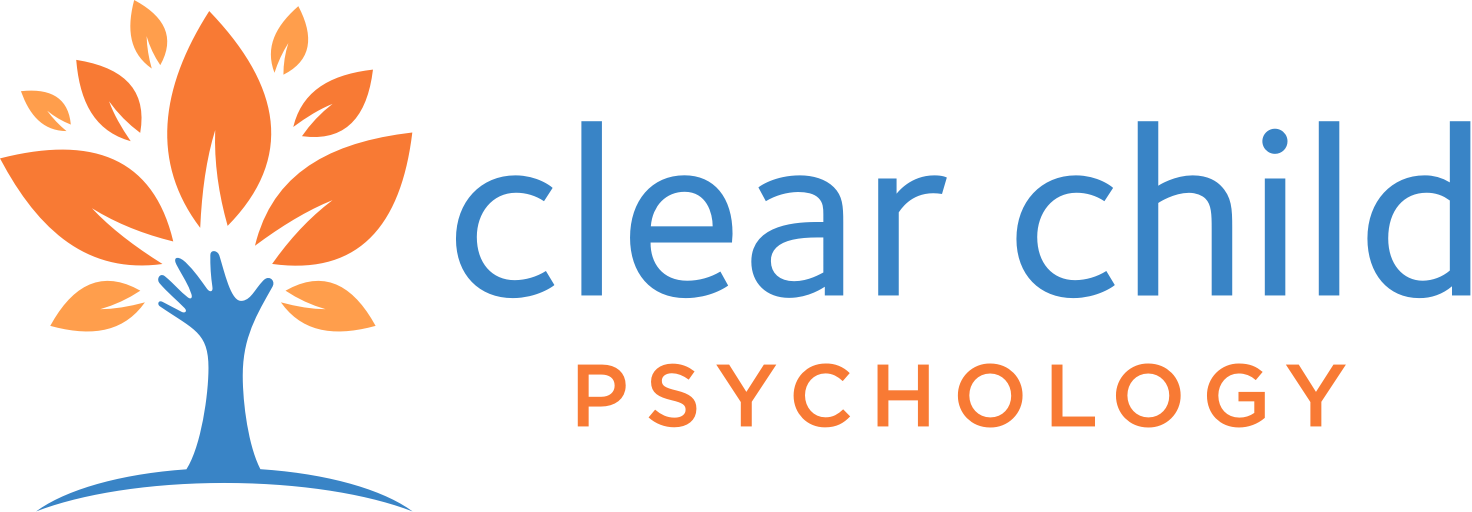FAQs
Can’t find the answer below? Contact us or give us a call at (303) 222-7923.
General
-
Is Clear Child Psychology a clinical practice or a software business?
Both! We provide clinical services directly to families, contract and refer to other providers; as well as, development and licensing out of our CADE software assessment tool.
-
Does Clear Child Psychology take insurance?
No, at present we do not accept insurance plans or Medicaid. The reason is that many of our unique methods, including our telehealth assessments, and family coaching model, are not often reimbursed by insurance plans. We have seen that even when insurance is used, the cost savings are minimal and we believe that the quality of our services and corresponding improvements in the mental health of the children we serve make invaluable use of the investment. We are also committed to offering our services at a low cost to families, and in a fraction of the time.
-
Does Clear Child Psychology provide direct therapy to children?
-
Does Clear Child Psychology prescribe medication?
No. We are psychologists. Psychologists diagnose but do not prescribe medications. We provide referrals to psychiatrists or other medical doctors if that appears to be warranted during the evaluation.
Parents
-
I’m concerned about my child’s development. What should I do?
Many families we meet feel lost on how to help their kids with mental health, behavior, or development. We can help by having a quick and free 20 minute meeting to see what’s going on and provide guidance as to whether an assessment or other service will be helpful for you.
-
I suspect my child has autism, but keep getting told to “wait and see.” What should I do?
Often well-meaning friends and professionals lead parents astray with comments like ‘he’s just being a boy’ or ‘all kids develop at different rates’ or ‘you don’t want a label.’ Unfortunately, this advice leads to wasted time for therapy that might be essential for your child’s healthy development. If you are concerned, trust your gut and don’t delay getting things checked out.
-
My child struggles to make friends or maintain friendships. What’s happening?
Even kids who are ‘socially motivated’ can struggle to make deep and lasting connections. This happens because intimate relationships require higher level skills and some kids need extra help to develop those. We can help guide you to the services or resources that teach social skills.
-
My child has a diagnosis and I still feel so overwhelmed. Where do I go for guidance?
Most families, even with a good evaluation feel lost and alone in a sea of therapy options. Even the right therapies will not work as your child’s needs begin to change with maturity and time. We can help by providing clarity and a customized roadmap for supporting your unique child.
-
My child is in therapy and new concerns have appeared. What should I do now?
We actually see that a lot. It’s a good thing when your child’s needs change as it is a sign of progress. However, it can be tricky to figure out what to do at this point. We can help by doing a mini-assessment (a non-diagnostic assessment) to evaluate your child’s current needs and create a plan to move forward on the new priorities that have emerged more recently.
-
My child is in therapy, but this one symptom is not going away. What do I do?
Some symptoms are stubborn to treat. It could be that the behavior pattern has become really entrenched as a way of coping or negotiating the environment. We can help by guiding you to therapy that more directly addresses that issue or helping you establish an in-home intervention plan.
Clinicians
-
It's challenging to explain the child's diagnostic profile to families. What approach should I take?
CADE is a great way to display data in a meaningful and accessible way for families. Often, even when the clinician and family see the severity levels differently, similar patterns are shown across raters. Taking a look at these graphical profiles together aids in communication and alignment among clinicians and families on priorities for treatment.
-
When is CADE used in the evaluation process? Is this a screener or diagnostic?
Both! CADE can be used early in the evaluation process to prepare for the initial consultation or first day of testing. That process allows for identification of the issues to address in interviews and testing. Then, after clinicians complete all the assessment measures, they can fill out CADE to get an autism probability score and severity level. In this way, CADE offers support in making diagnostic decisions.
